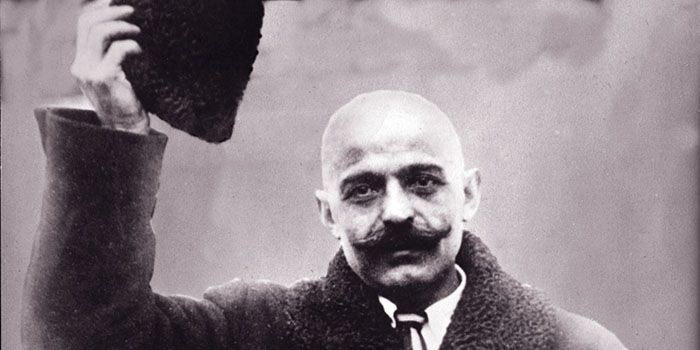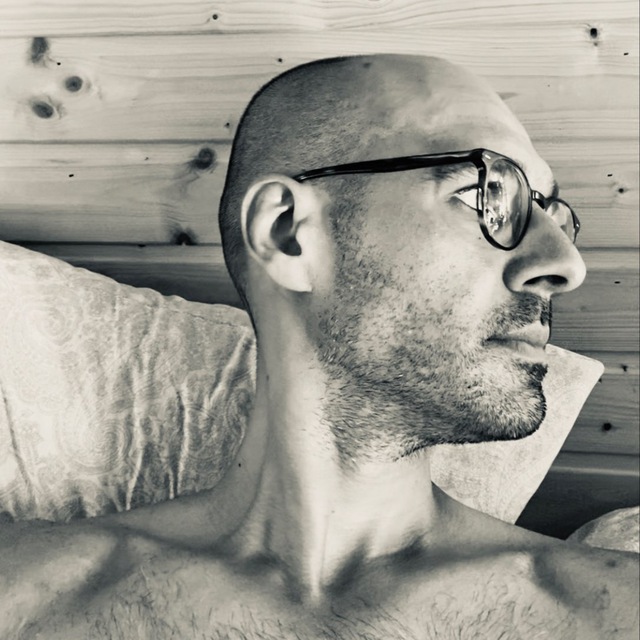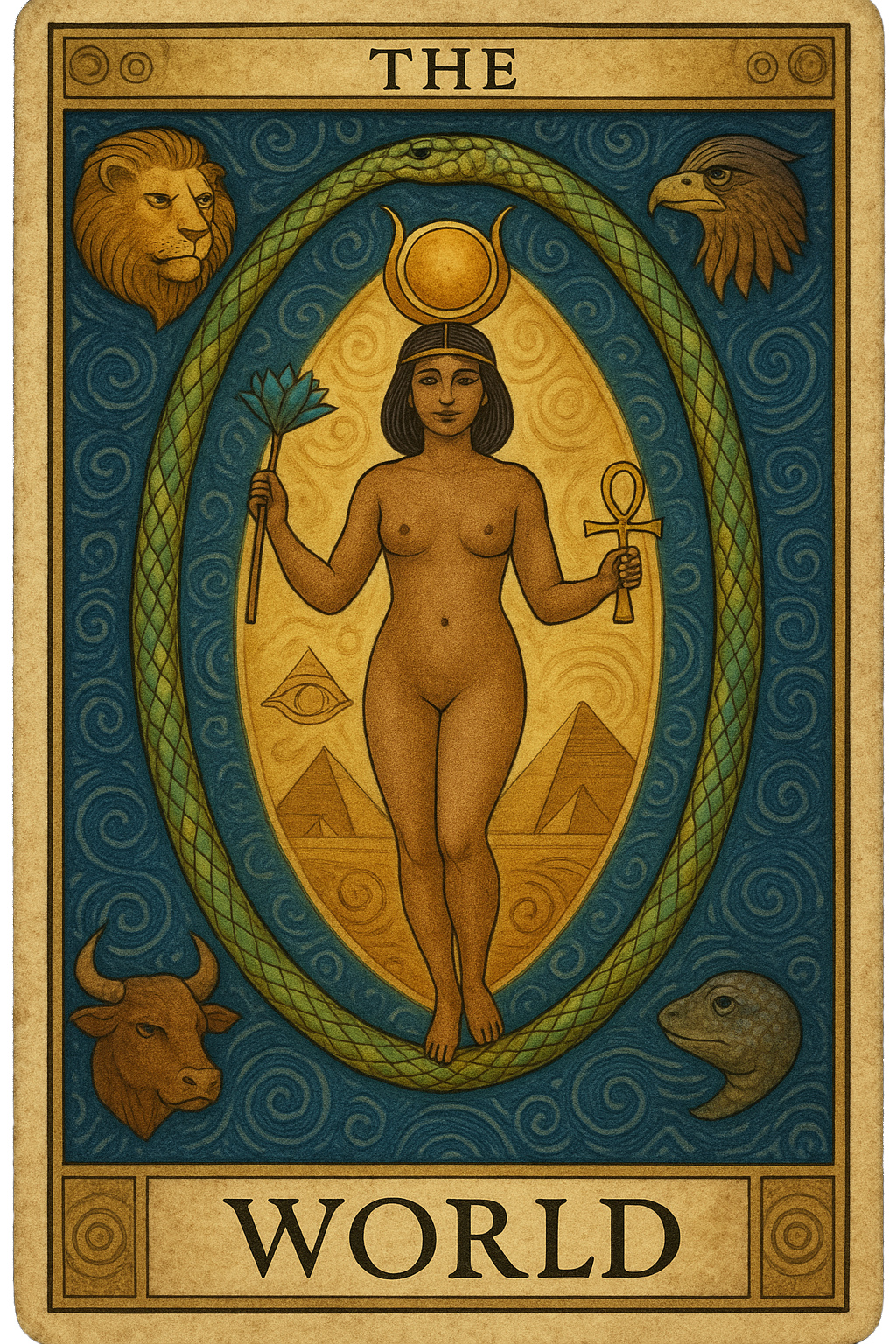Comments
Check out our elevator pitch or sign in
Next Up...
The library now supports mind maps

Check out Gurdjieff's Beelzebub's Tales to His Grandson summed up in a single chart.
https://www.theagora.space/library/mindmap/1
 Andreas
Andreas🜏 XXI – THE WORLD

Within the eternal loop of the ouroboros, the central figure stands serene, poised between heaven and earth. In their right hand, they raise the ankh, the breath of life. In their left, a blue lotus—symbol of resurrection and the awakening of consciousness. Upon their brow rests the golden solar disc, the seal of Ra, bestowing radiance and eternal sovereignty.
Around them swirl the four elemental guardians:
🦁 Lion (South) – Fire, Sekhmet, willpower and courage
🐂 Bull (North) – Earth, Apis, endurance and stability
🦅 Hawk (East) – Air, Horus, vision and spirit
🐊 Crocodile (West) – Water, Sobek, memory and transformation
Behind them rise the pyramids, repositories of ancient science. The Eye of Ra blinks open above, representing divine vigilance and the inner gnosis that pierces illusion.
Alternate Title: The Divine Spiral
Element: Aether
Symbol: Ouroboros, Ankh, Lotus
Figure: The Soul-Crowned
You have reached the completion of a cycle, not as an end—but as a return to origin, with consciousness transformed.
The World card is the alchemical coronation: the Philosopher’s Stone achieved, the sacred marriage complete, the soul awakened. You are no longer bound by the elemental planes—you stand above them, in harmony with all.
It reflects the Hermetic axiom:
"Man is a star bound to a body, but through discipline may regain the divine fire."
This card marks:
The final integration of opposites (matter and spirit, masculine and feminine, above and below)
Mastery over the self and the material plane
Reunion with the divine field of intelligence (Nous)
The Fool’s journey ends in gnosis—having walked the labyrinth, they now know it is made of light.
 Andreas
AndreasSo they do admit that "Elohim" is plural for gods not one God
YHWH is just one of that Elohim, not God with a capital G. I thought they would deny it, but apparently they don't.
 Andreas
Andreas